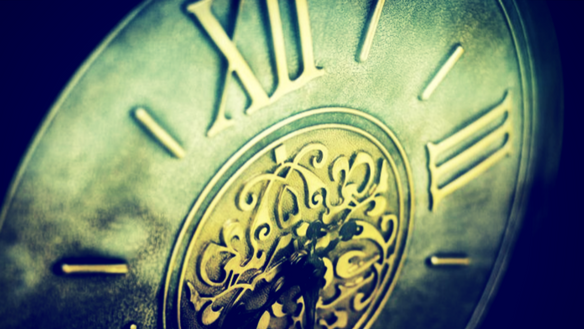
Have you considered this one important question?
The twice-tolling clock, the Count explained, had been commissioned by his father from the venerable firm of Breguet. Establishing their shop in Paris in 1775, the Breguets were quickly known the world over not only for the precision of their chronometers (that is, the accuracy of their clocks), but for the elaborate means by which their clocks could signal the passage of time. They had clocks that played a few measures of Mozart at the end of the hour. They had clocks that chimed not only at the hour but at the half and the quarter. They had clocks that displayed the phases of the moon, the progress of the seasons, and the cycle of the tides. But when the Count’s father visited the shop in 1882, he posed a very different sort of challenge for the firm: a clock that tolled only twice a day.
Quite simply, the Count’s father had believed that while a man should attend closely to life, he should not attend too closely to the clock. A student of both the Stoics and Montaigne, the Count’s father believed that our Creator had set aside the morning hours for industry. That is, if a man woke no later than six, engaged in a light repast, and then applied himself without interruption, by the hour of noon he should have accomplished a full day’s labor.
Thus, in his father’s view, the toll of twelve was a moment of reckoning. When the noon bell sounded, the diligent man could take pride in having made good use of the morning and sit down to his lunch with a clear conscience. But when it sounded for the frivolous man—the man who had squandered his morning in bed, or on breakfast with three papers, or on idle chatter in the sitting room—he had no choice but to ask for his Lord’s forgiveness.
In the afternoon, the Count’s father believed that a man should take care not to live by the watch in his waistcoat—marking the minutes as if the events of one’s life were stations on a railway line. Rather, having been suitably industrious before lunch, he should spend his afternoon in wise liberty. That is, he should walk among the willows, read a timeless text, converse with a friend beneath the pergola, or reflect before the fire—engaging in those endeavors that have no appointed hour, and that dictate their own beginnings and ends.
And the second chime?
The Count’s father was of the mind that one should never hear it. If one had lived one’s day well—in the service of industry, liberty, and the Lord—one should be soundly asleep before twelve.
~ A Gentleman in Moscow, by Amor Towles
_____________
This charming, engaging account about how one man in a bygone era considered time, provides some significant food for thought about one basic question when it comes to evangelism:
Could struggles to engage in the Mission of God be directly related to the schedules of a twenty-first century person?
Do our days today leave space for “wise liberty?” Enough room so that we can spend time conversing with a “friend beneath the pergola” or reflecting “before the fire—engaging in those endeavors that have no appointed hour, and that dictate their own beginnings and ends”?
Clearly Jesus allowed the time in his days for significant interactions:
-
As he is on his way to the deathbed of an official’s critically ill daughter, a woman touches the edge of his cloak and is healed, and then he pauses to talk to her.
-
While on his way to Jerusalem (and the Cross), Jesus sees a man born blind and turns aside to talk with him and heal him, too.
- And when his travels are interrupted by a widow’s funeral for her son, Jesus’ deep compassion for her makes him stop and raise her child from the dead.
Though it is unlikely our schedules will ever even remotely resemble that of an Russian aristocrat from the late 1800s, is it reasonable that followers of Jesus at least consider making adjustments to daily routines—as he did—so that we have time to impact those whom he puts in our paths where we live, work, and play?
